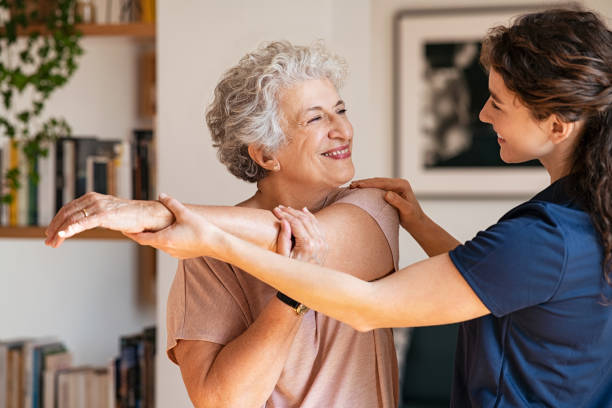Biceps tendinitis is inflammation of the tendon around the long head of the biceps muscle. Biceps tendinosis is caused by degeneration of the tendon from athletics requiring overhead motion or from the normal aging process.
Inflammation of the biceps tendon in the bicipital groove, which is known as primary biceps tendinitis, occurs in 5 percent of patients with biceps tendinitis. Bicep tendinitis and bicep tendinosis are commonly accompanied by rotator cuff tears or SLAP (superior labrum anterior to posterior) lesions.
Patients with these types of injuries usually complain of a deep, throbbing ache in the anterior shoulder. Repetitive overhead motion of the arm initiates or exacerbates the symptoms. The most common isolated clinical finding in biceps tendinitis is bicipital groove point tenderness with the arm in 10 degrees of internal rotation.
SECONDARY IMPINGEMENT
Pathology of the biceps tendon is most often found in patients 18 to 35 years of age who are involved in sports, including throwing and contact sports, swimming, gymnastics, and martial arts. These patients often have secondary impingement of the biceps tendon, which may be caused by scapular instability, shoulder ligamentous instability, anterior capsule laxity, or posterior capsule tightness. Secondary impingement may also be caused by soft tissue labral tears or rotator cuff tears that expose the biceps tendon to the coracoacromial arch.


PRIMARY IMPINGEMENT
Biceps tendinitis may also refer to tendinosis, which is a syndrome of overuse and degeneration. Older patients (athletes older than 35 years or non-athletes older than 65 years) may have acute bicep tendinitis caused by sudden overuse, or biceps tendinosis caused by use over time.
Primary impingement syndrome is considered the most common cause of biceps tendinosis or tenosynovitis ( inflammation of the tendon sheath). Primary impingement is a mechanical impingement under the coracoacromial arch caused by either a) bone spur formation of the acromion, b) an unfused acromial apophysis, or c) thickening of the coracoacromial ligament. It may also be caused by osteoarthritic spurs impinging on the bicipital groove.
Primary impingement in athletes older than 35 years leads to a higher incidence of rotator cuff tears than in younger athletes.
The physio Brisbane team at Pivotal Motion can provide you with physiotherapy for shoulder pain, or bicep pain, that can aid your recovery. If you have further enquries, or need injury physiotherapy treatment for a different condition, book an appointment online or call us today on 07 3352 5116.
FREQUENTLY ASKED QUESTIONS
What does bicep tendinitis feel like?
You will most likely experience pain or discomfort when moving your shoulder. Additionally, you may also experience weakness and tenderness.
How long is the recovery process?
Actual recovery time will differ from patient to patient and depend on the extent of the injury. Recovery from biceps tendinosis may range from a month to a year. Biceps tendinitis may take 6 weeks to several months to heal.
What treatment options are available for bicep tendinitis?
Generally, strengthening and stretching may be beneficial but specifics will vary and require a consultation. Schedule an appointment online or call us on 07 3352 5116 today!

